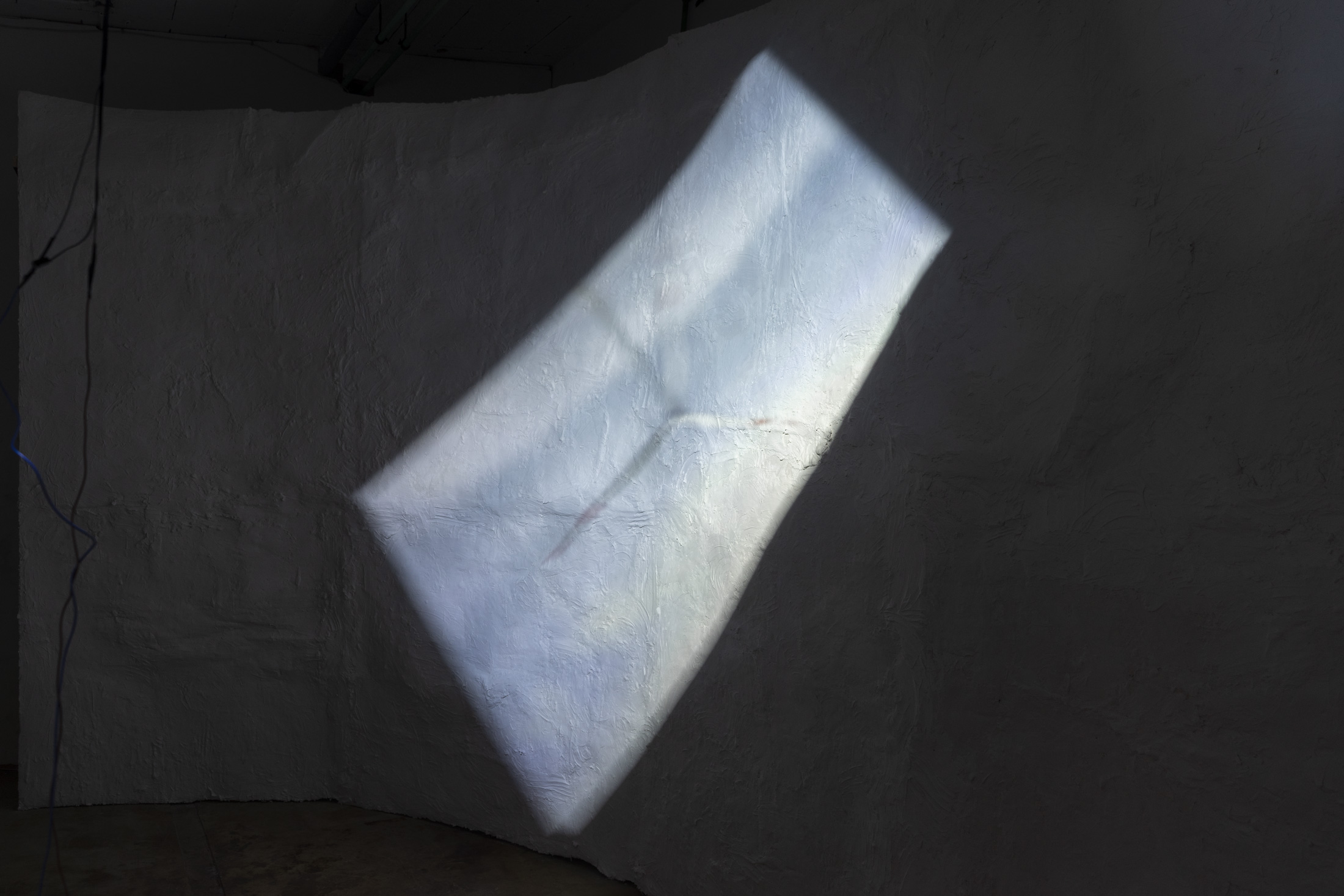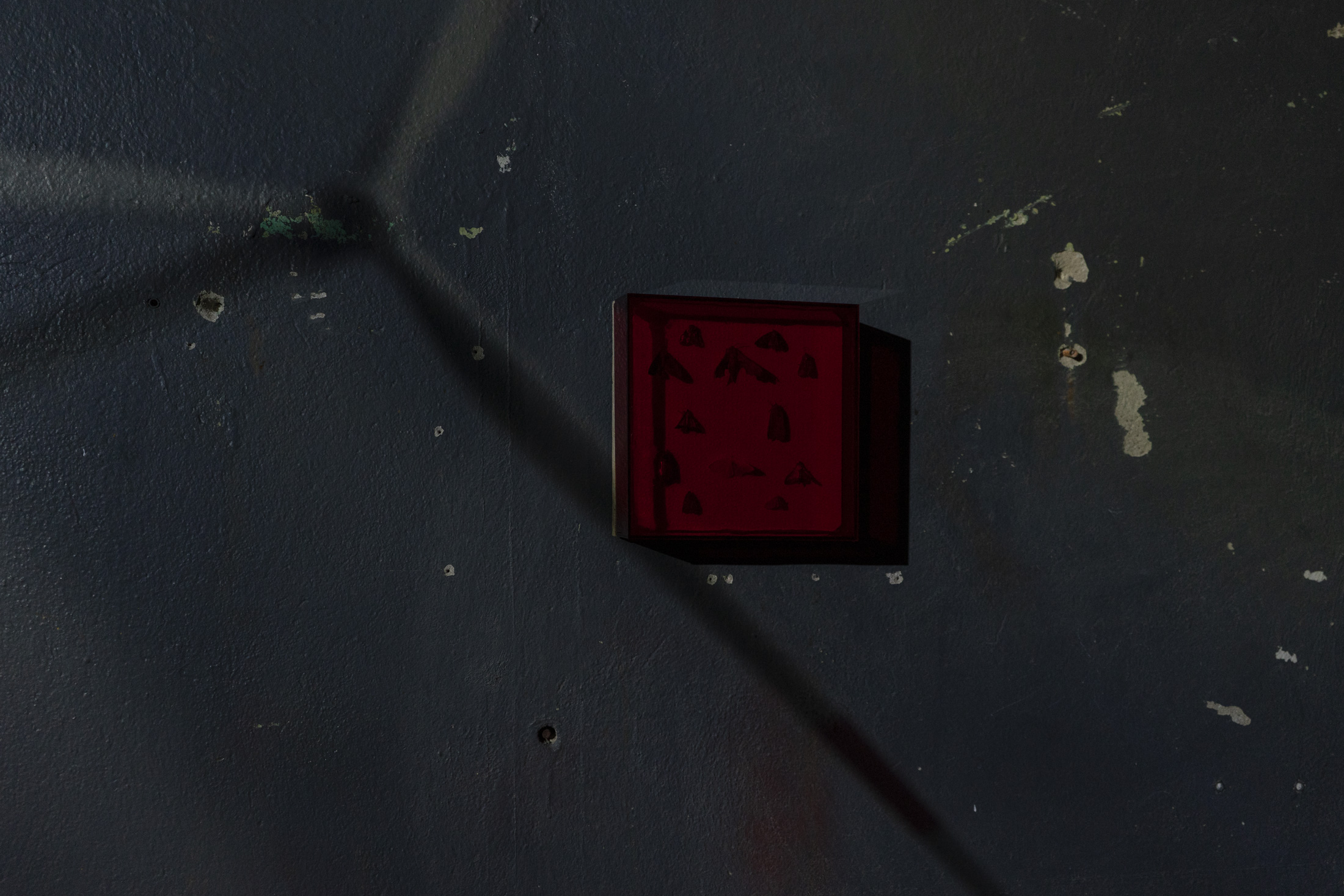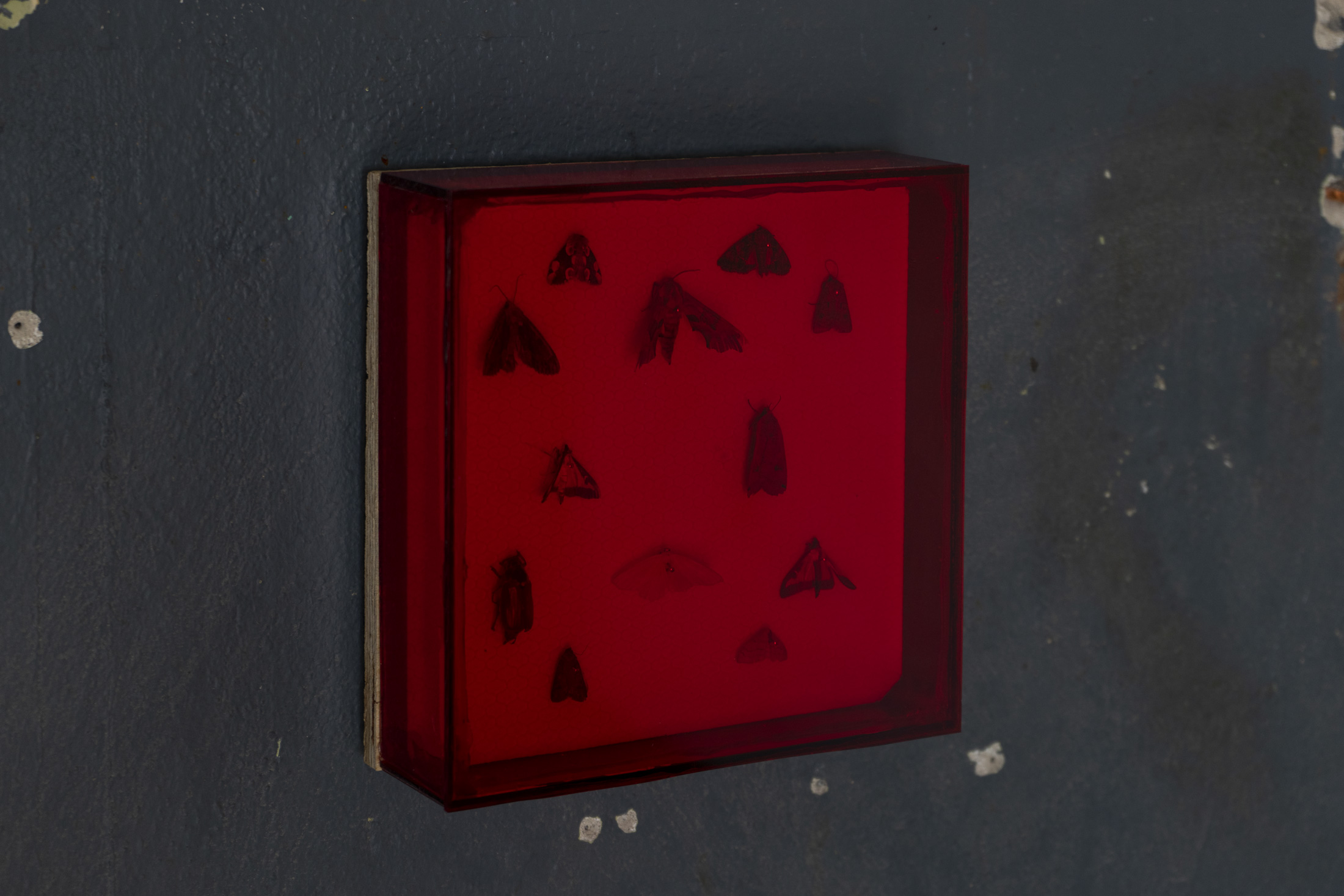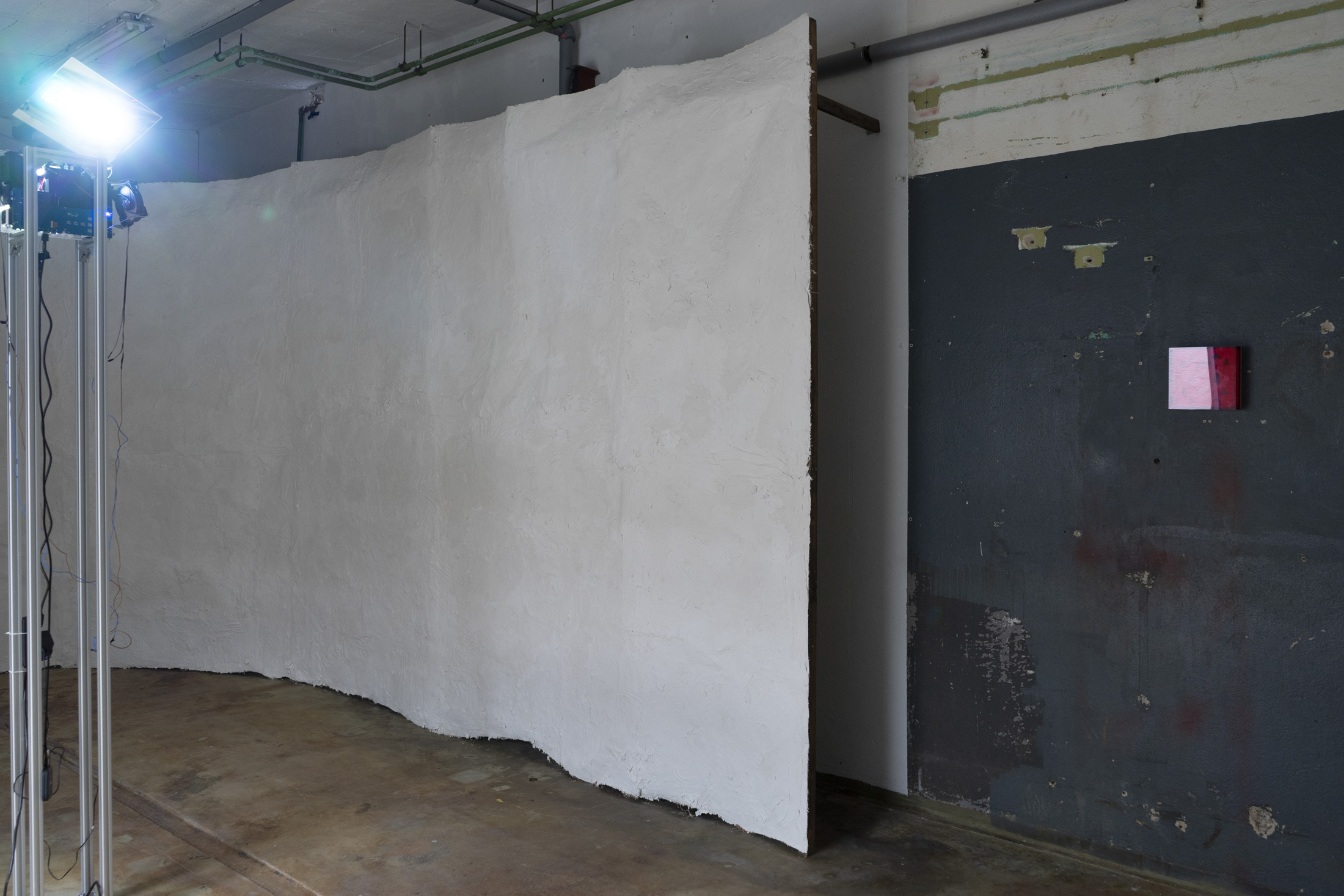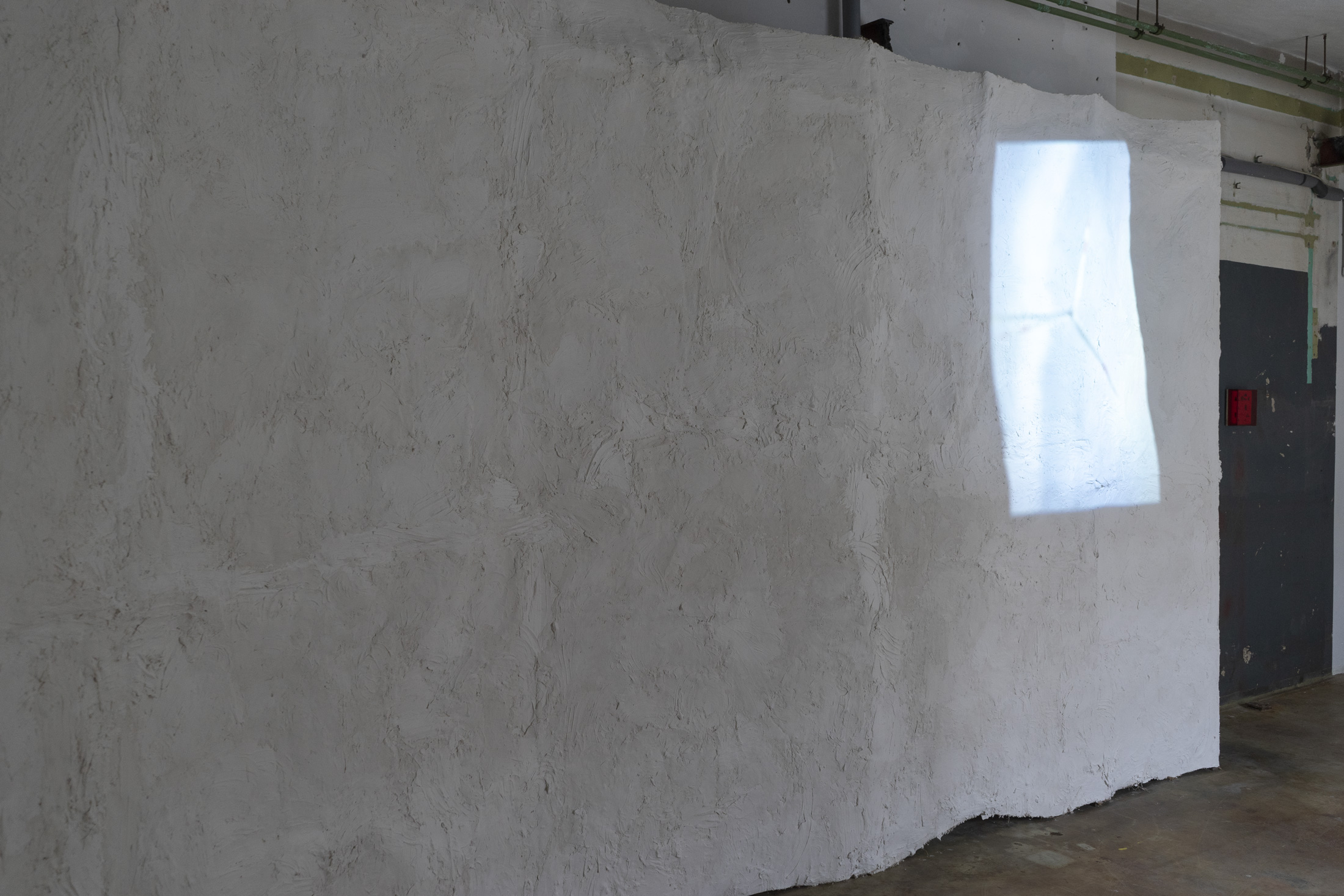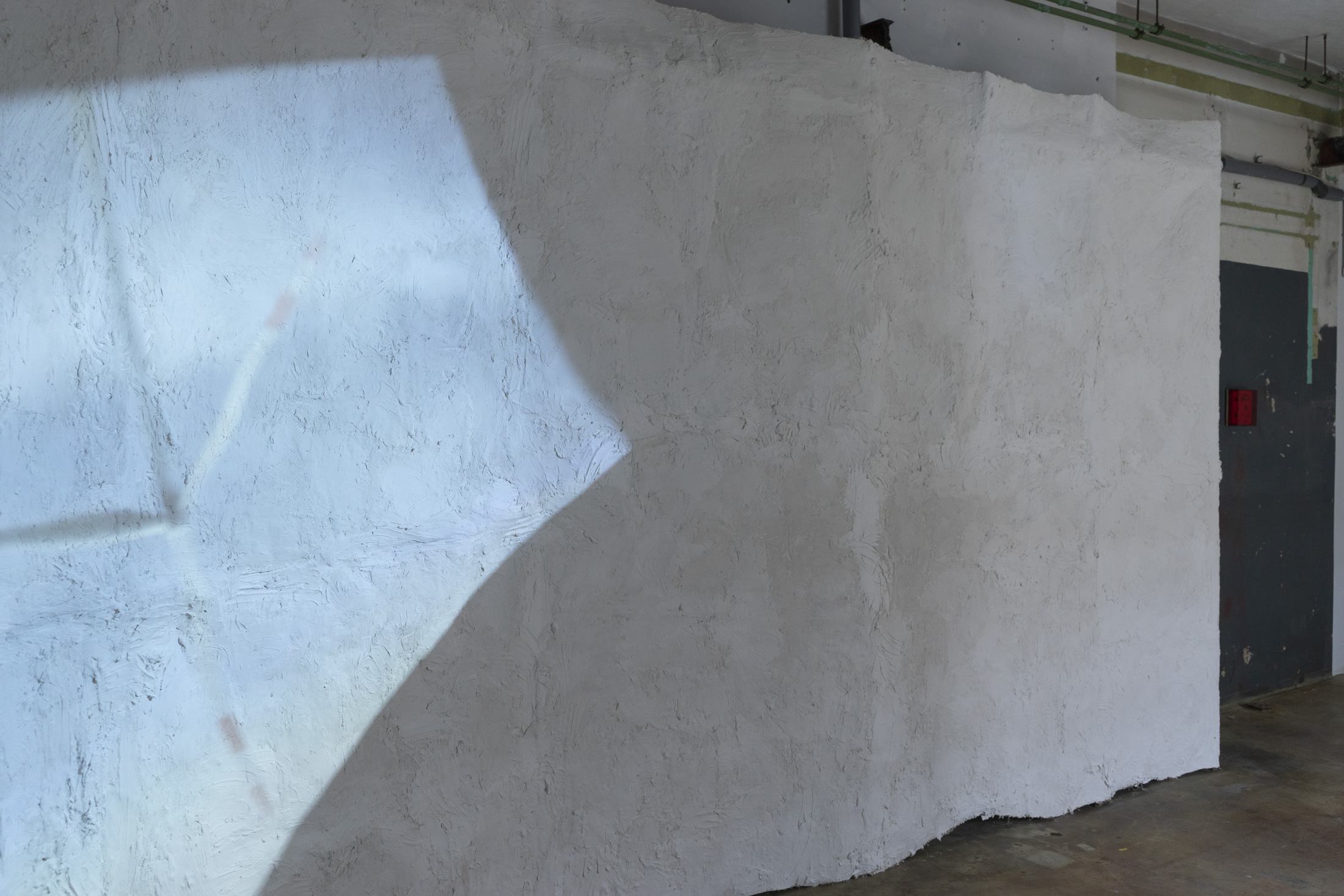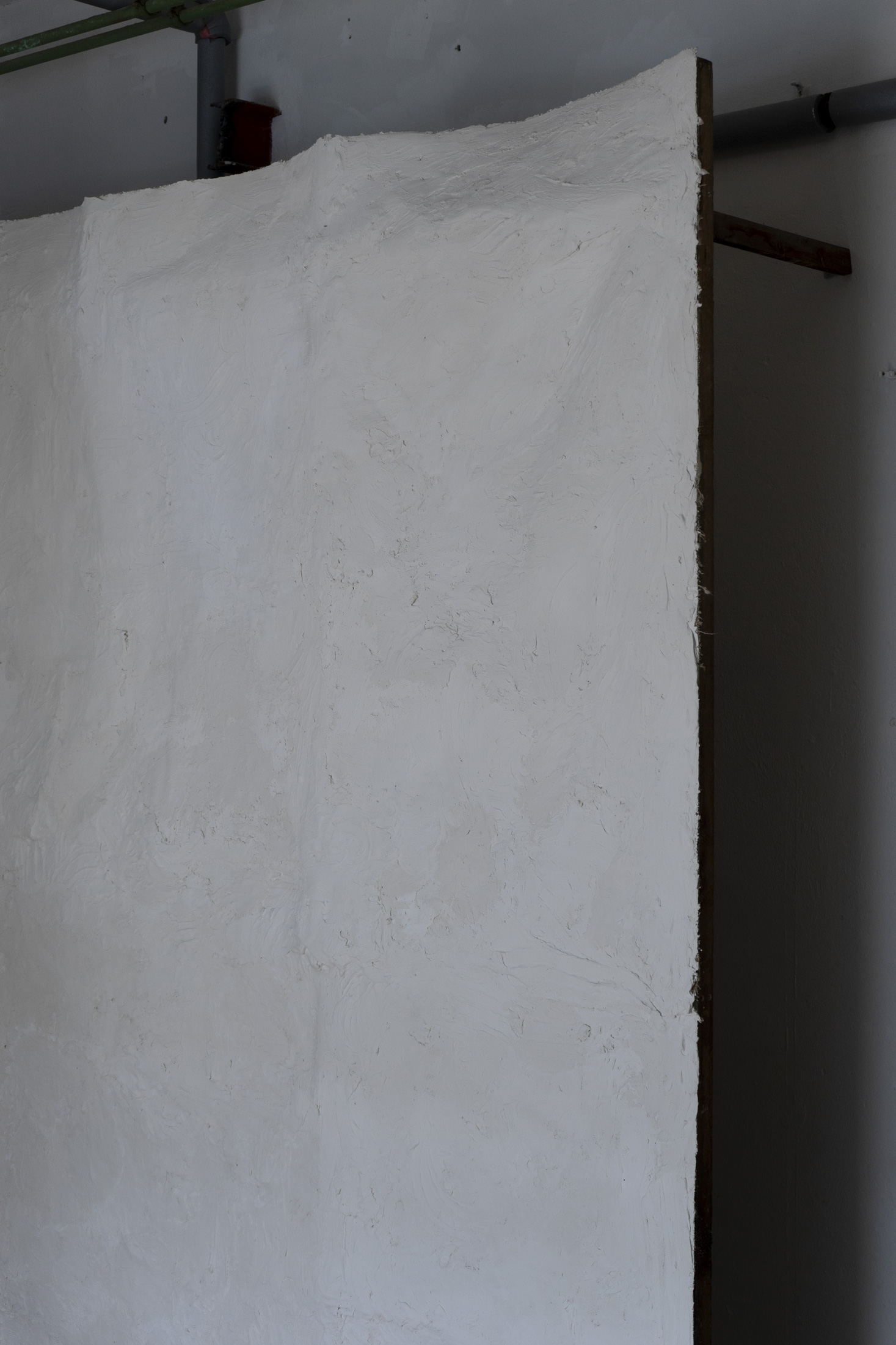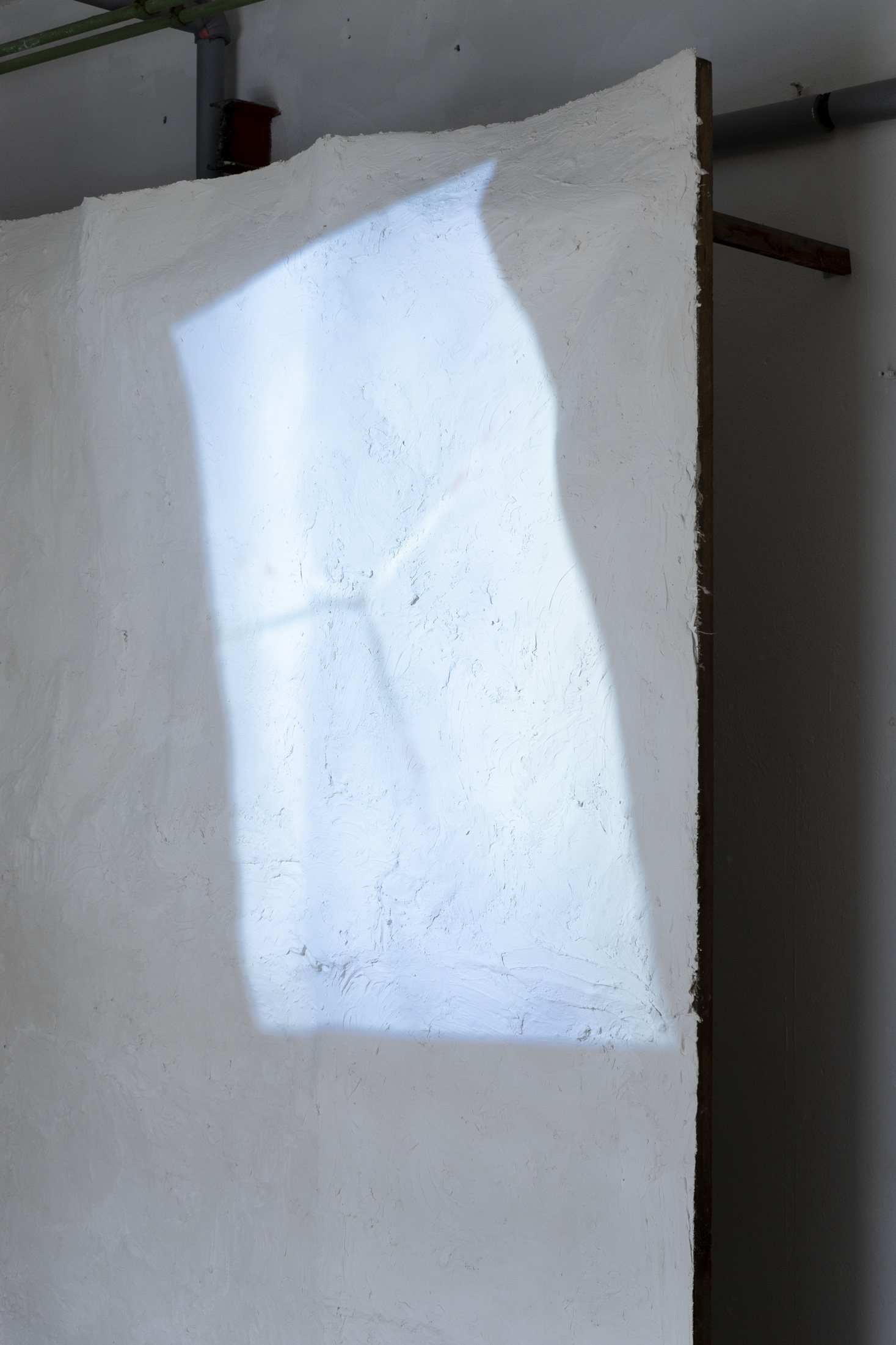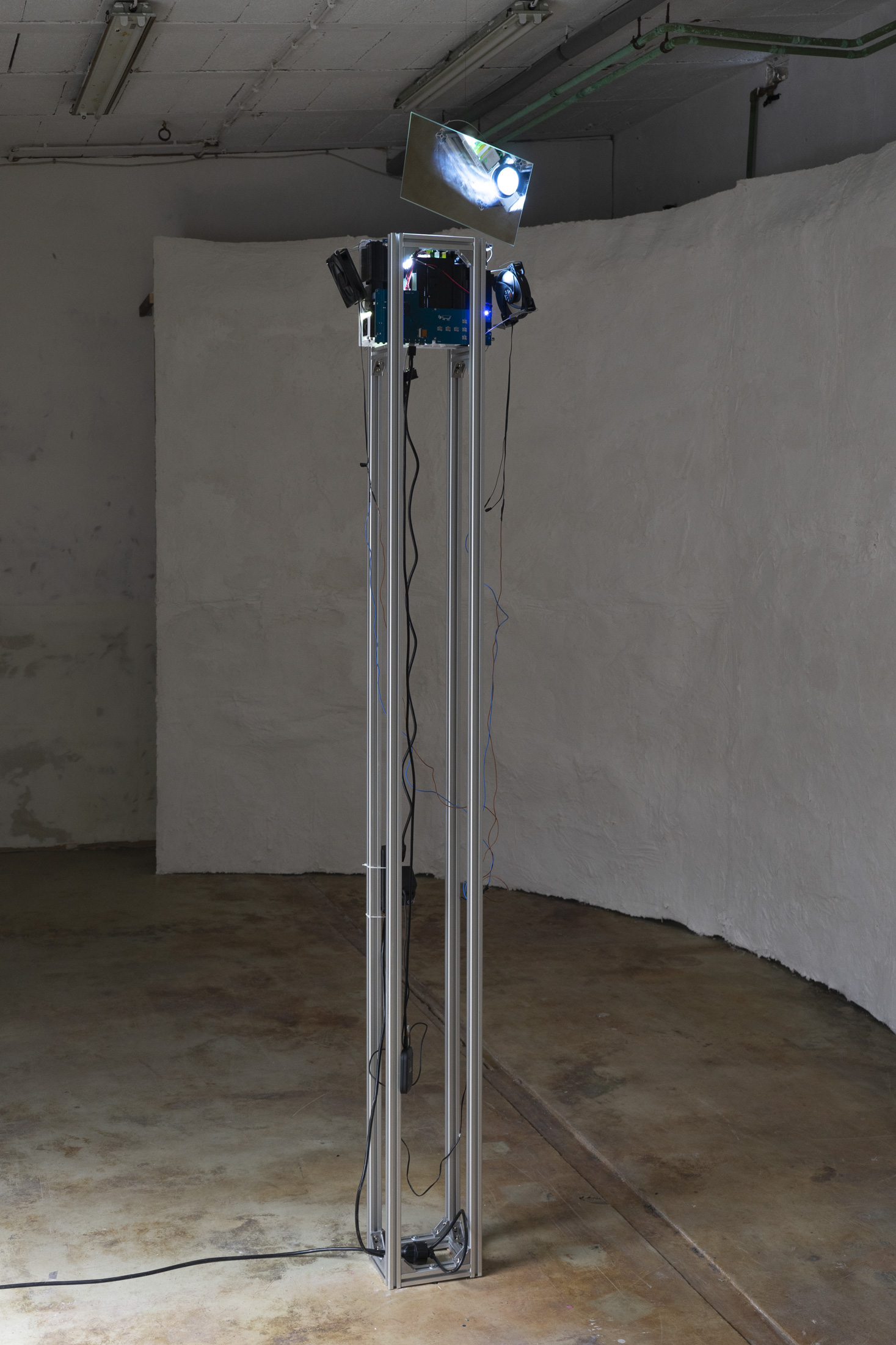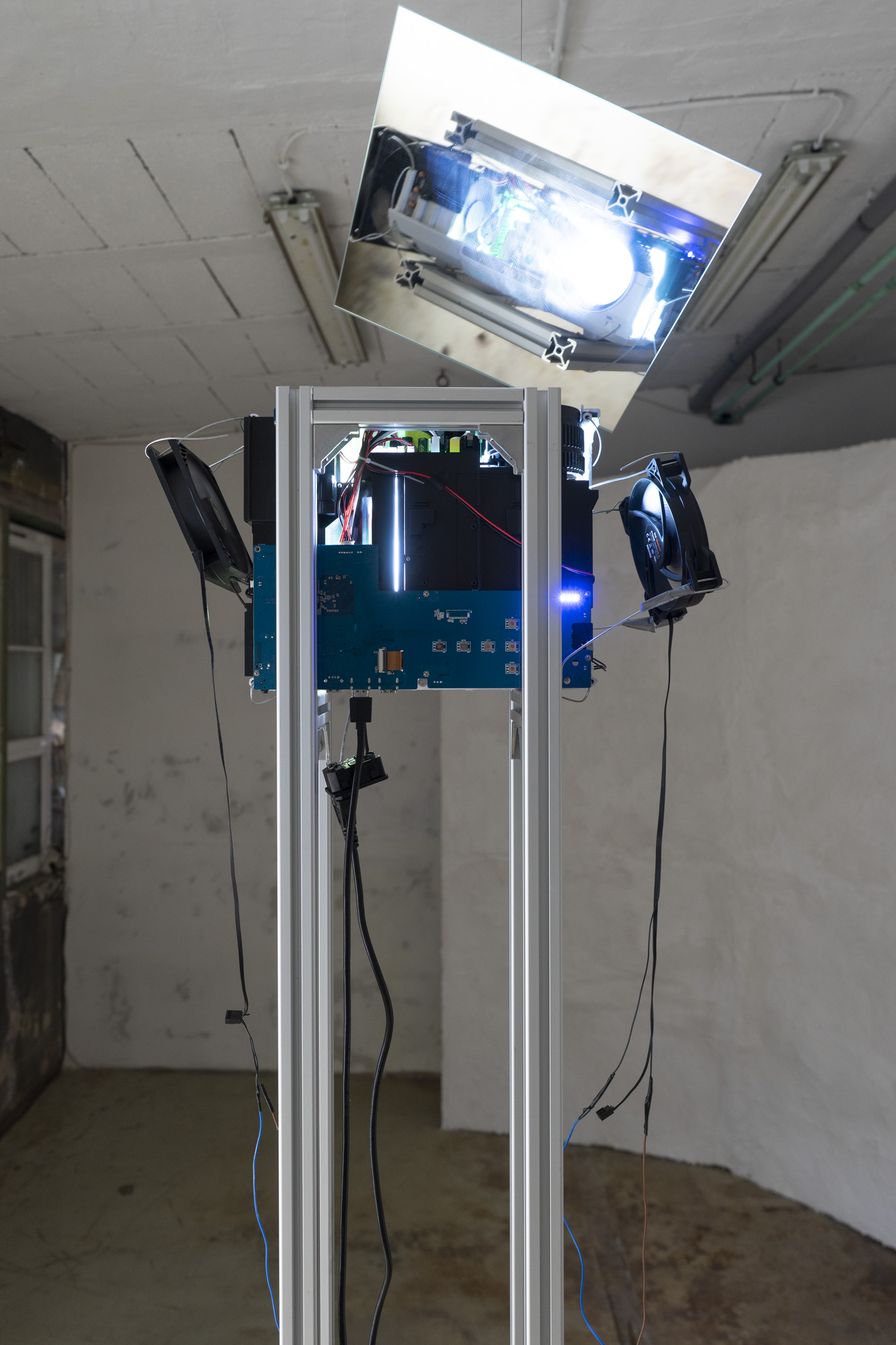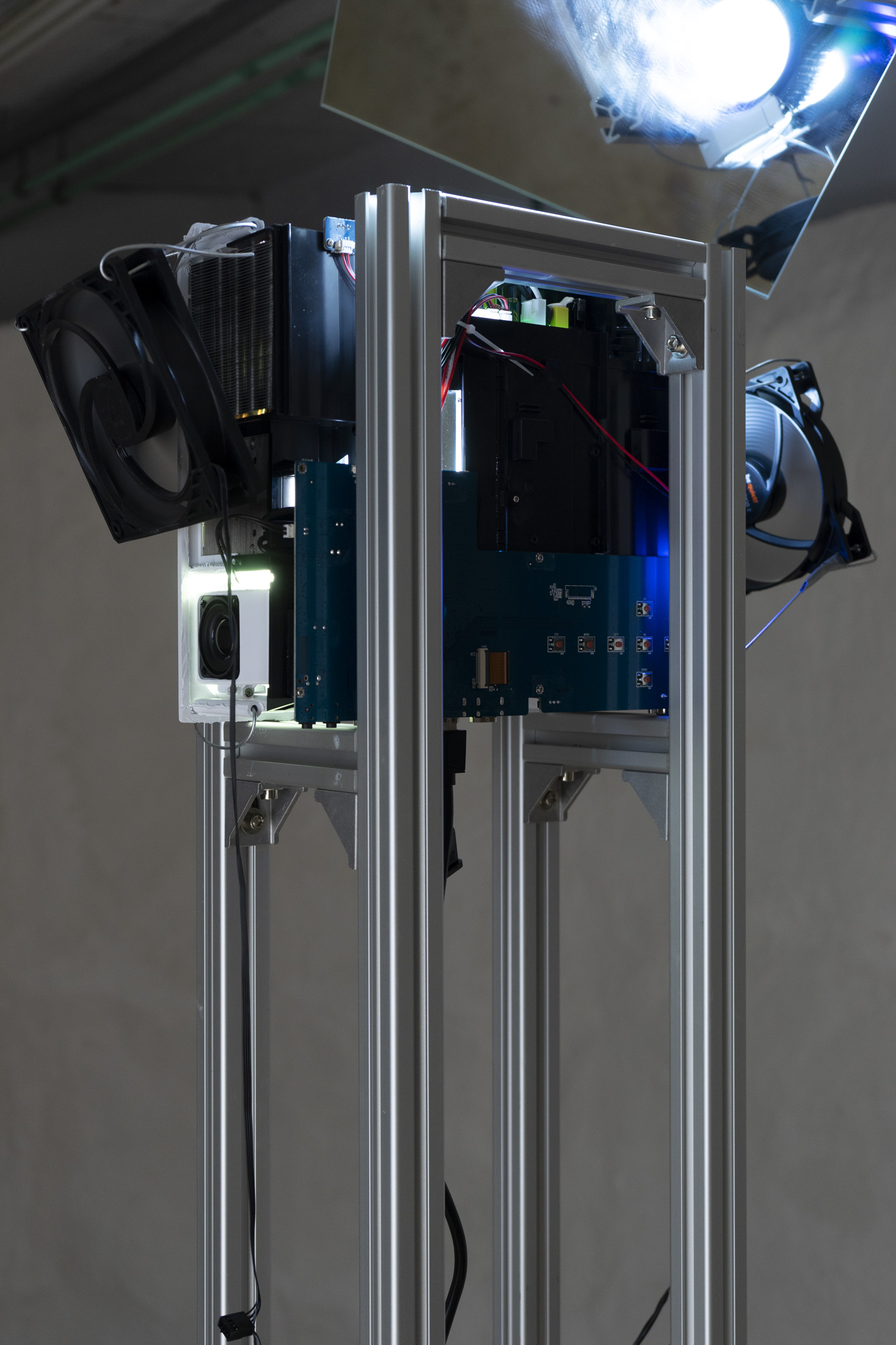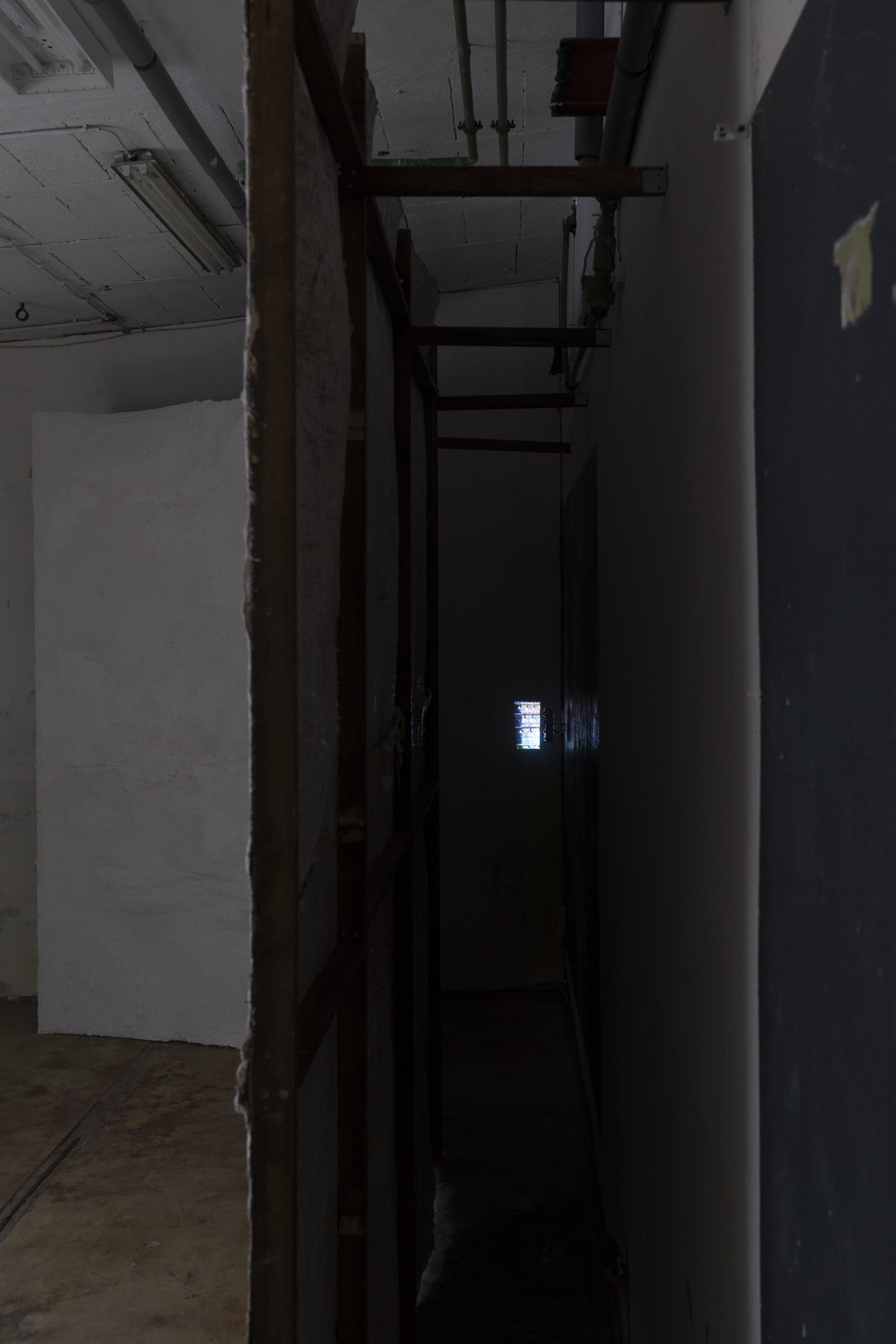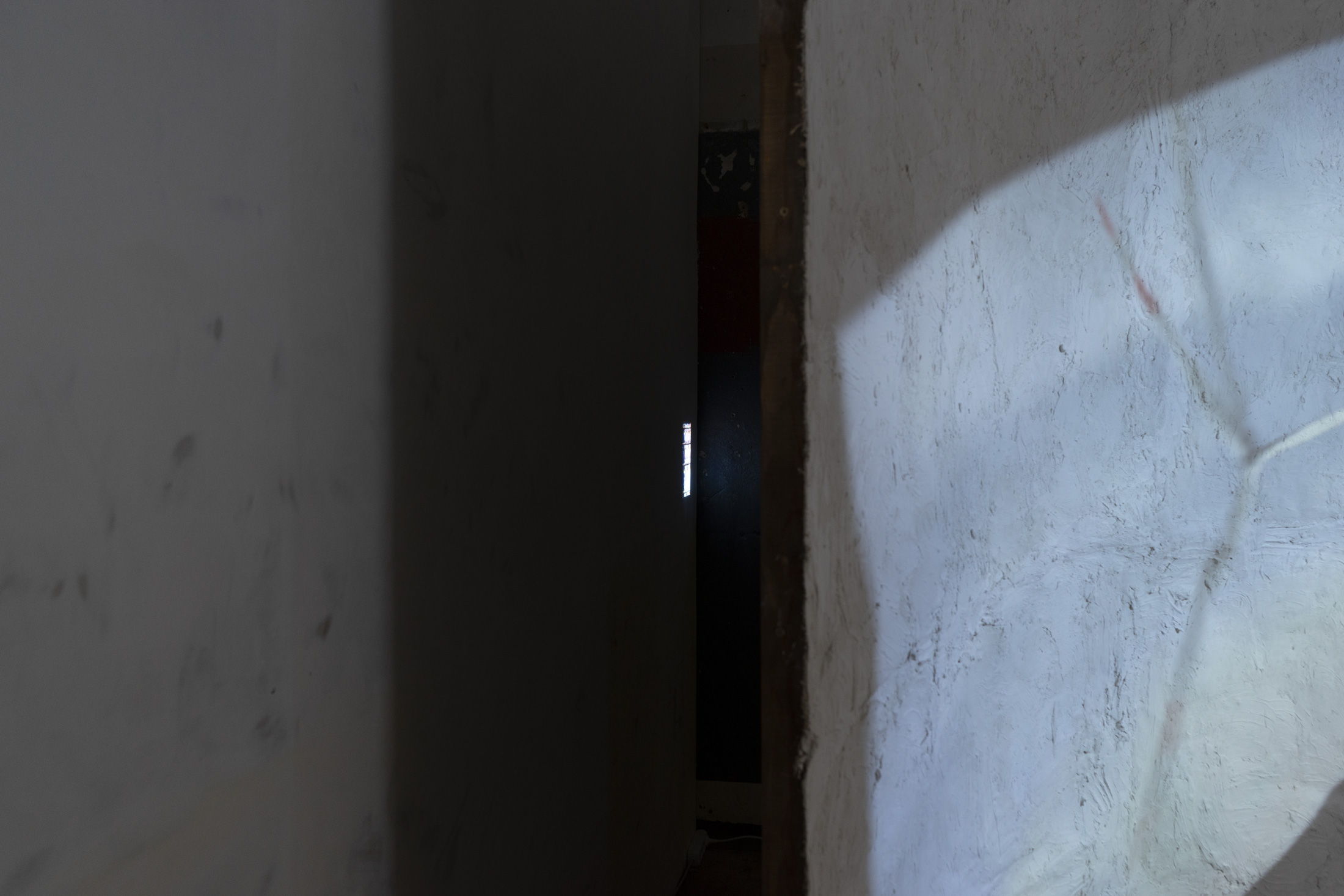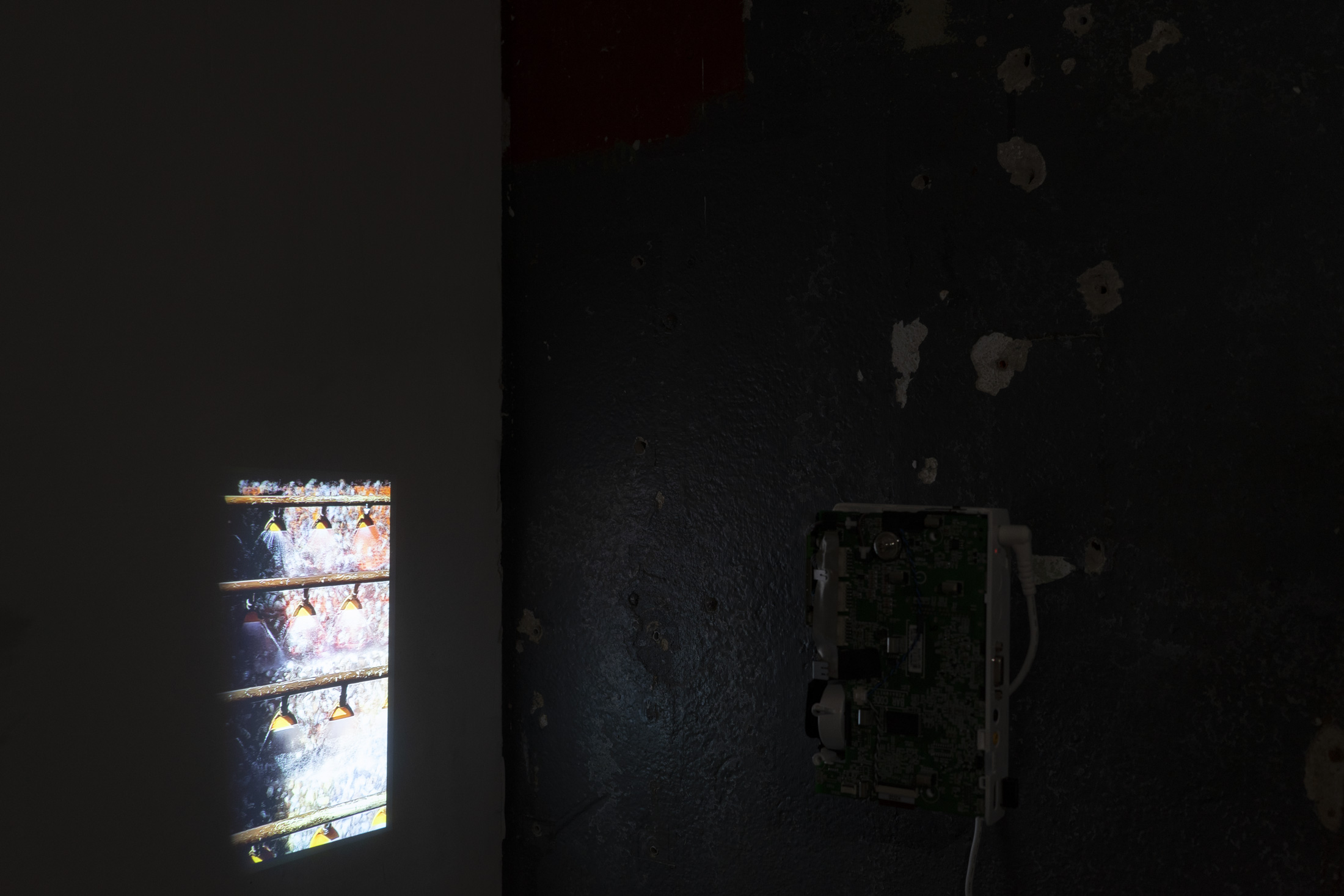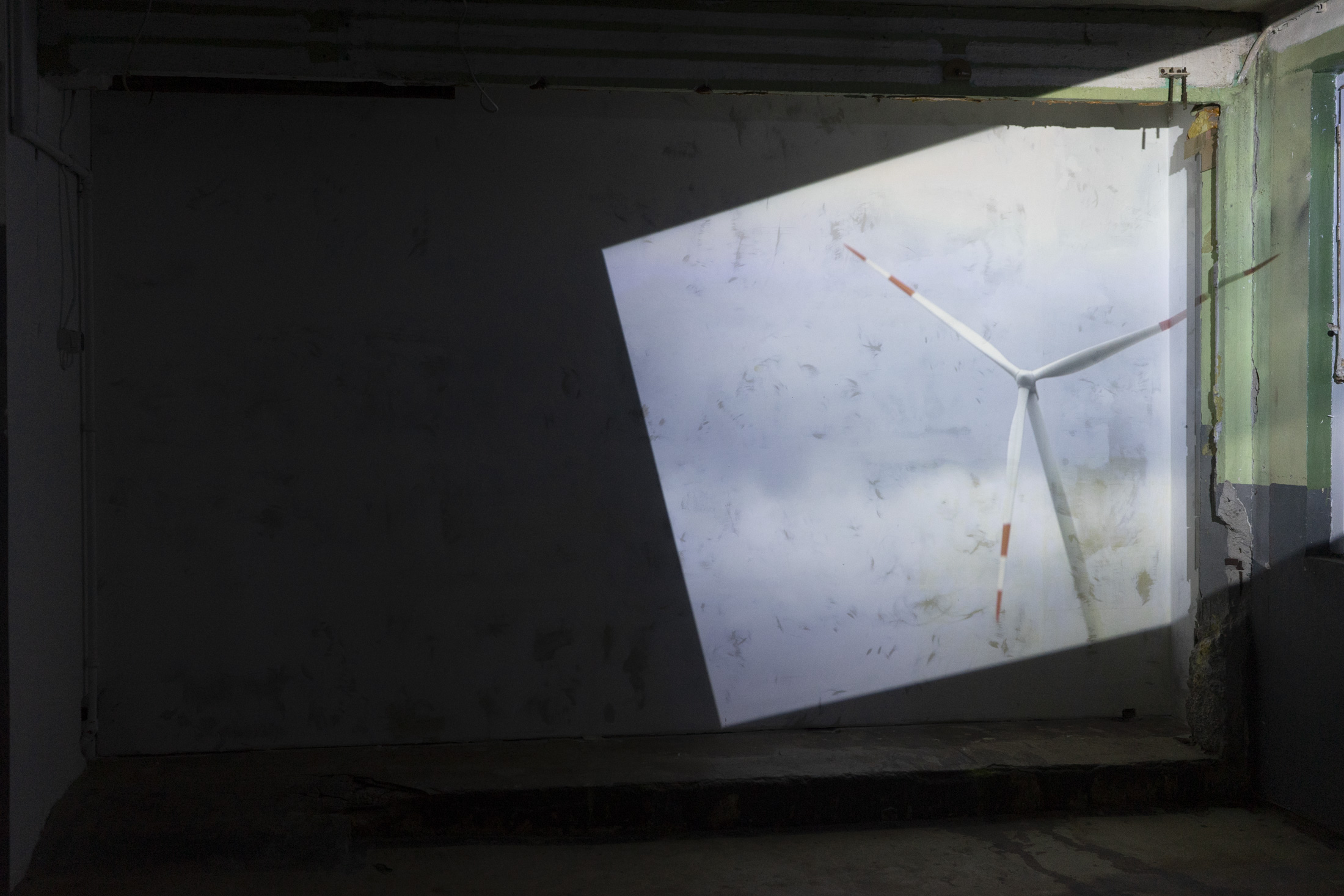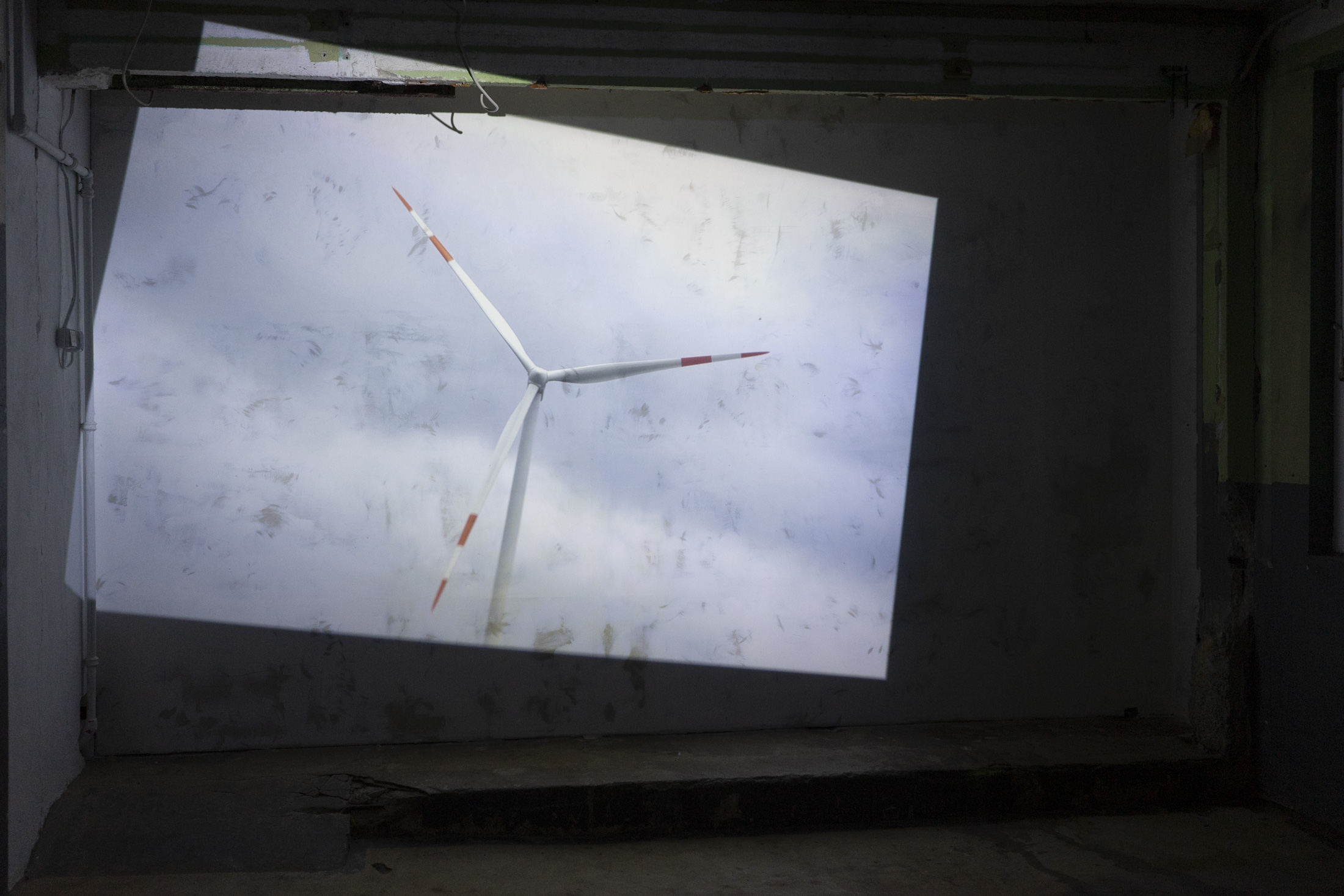Blaupause
Blaupause
Paul F. Millet & Swinda Oelke
September 24 2022 - November 03 2022
Video: Offert Albers
In the twilight, eyes are dazzling, such as a first contact with reality. The body, bathed in the opacity of emptiness, starts to see. We’re guided by our senses like boats by the lighthouse. In the near-darkness beams show the limits of reality. These limits mark the finiteness of the world that we felt but did not see, then still bathed in it. Projections attract us because they inform us. They give meaning and shape to the invisible, to the unknown. But much more than giving body to the imperceptible, images simulate reality by pretending to exist. This illusion, that around us existence is in motion, makes us dizzy. From our senses, view is perhaps the one that disorients us the most. On the contrary, ties us to a form of stability in space, a constancy to overcome the inner vertigo of sensitive impressions. Yet the walls participate in the illusion by letting projections reflect on them. The dizziness caused by the simulation of motion exists only in relation to the apparent permanence of the wall. The wall’s stability is complicit in the evanescence of appearances. Both are playing us. One simulates existence by making present what is absent. The other conceals hidden objects, being and senses, making absent what is present. We’re moving into the night. The path of knowledge is winding, so that we feel with our hands the finiteness of the world in order to establish certain knowledge. But is it only knowable? Can we apprehend it without being fooled? The sensitive is in any case mysterious, and its mystery lies in the understanding of its inaccessibility.
Alexis de Varax
